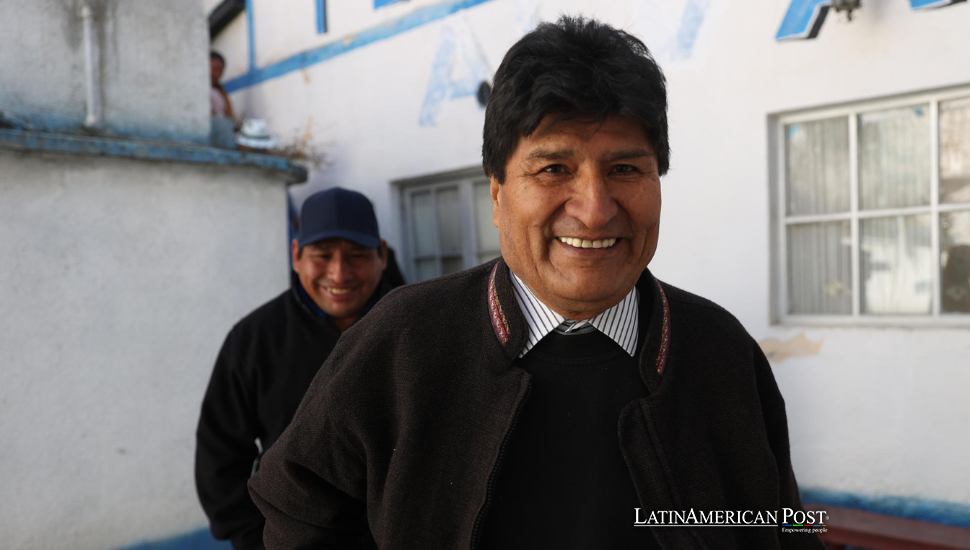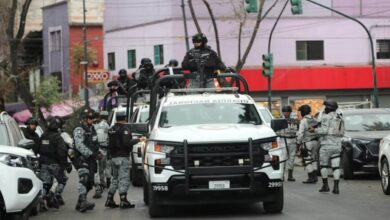Political Rift in Bolivia’s Ruling Party Escalates into Violence

Rival factions within Bolivia’s governing party, the Movement Toward Socialism (MAS), have clashed violently in La Paz. As the 2025 general election approaches, the deepening rift between supporters of President Luis Arce and former President Evo Morales raises concerns about the party’s future.
The political landscape in Bolivia has been rocked by violent clashes between rival factions of the governing party, the Movement Toward Socialism (MAS). Footage from the capital city of La Paz shows party loyalists engaging in fierce battles, throwing stones, wielding sticks, and physically attacking one another. The internal conflict within MAS, which has dominated Bolivian politics for nearly two decades, has intensified as the general election scheduled for August 2025 draws closer.
The Movement Toward Socialism has been a dominant force in Bolivian politics, holding the presidency for only one year since 2005. However, the party is now deeply divided between current President Luis Arce’s supporters and those backing former President Evo Morales. This division was starkly evident on Wednesday outside the Supreme Electoral Tribunal (TSE) offices, where both Arce and Morales had arrived for discussions with other political leaders about the upcoming election.
The clash outside the TSE lasted several hours, with supporters of Arce chanting, “Lucho, you’re not alone!” and those of Morales shouting, “Evo president, Evo president.” The intensity of the confrontation highlighted the bitter rivalry between the two factions. The mayor of La Paz, who was present to appeal for calm, was injured by a stone thrown during the melee, underscoring the volatility of the situation.
Historical Context and Political Power Struggles
Evo Morales, a long-standing leader of MAS, led the party to electoral victories in 2005, 2009, and 2014. However, his controversial decision to run for a fourth term in the 2019 election, despite a 2016 referendum against removing presidential term limits, sparked a deep divide within the party and the public.
Despite this opposition, Morales’ supporters pointed to a 2017 constitutional court ruling that lifted term limits, making his fourth run legally permissible. Morales was declared the winner of the contentious 2019 election, but widespread protests and allegations of electoral fraud forced him to resign and seek exile. Morales has consistently claimed that the military coerced his resignation, describing it as a “coup.”
A caretaker government led by right-wing senator Jeanine Áñez took charge until new elections could be held. In the 2020 election, Morales’ former finance minister and close ally, Luis Arce, ran as the MAS candidate and secured a decisive victory, allowing Morales to return to Bolivia. However, tensions between Arce and Morales soon surfaced, culminating in Morales announcing his candidacy for the 2025 election, directly challenging Arce’s leadership.
The rift between Morales and Arce has only widened in recent months, particularly following an incident on June 24, when Bolivian army commander Gen. Juan José Zúñiga appeared to initiate a coup against President Arce. Initially, Morales denounced the general’s actions, but he later accused Arce of staging the incident to garner sympathy and boost his popularity. Arce has firmly denied these allegations, dismissing any notion of a “self-coup.”
The recent violence in La Paz underscores the depth of the division within MAS and raises questions about the party’s ability to maintain unity ahead of the 2025 election. The clashes are about individual ambitions and reflect broader ideological and strategic disagreements within the party. The outcome of this internal conflict will have significant implications for Bolivia’s political future and stability.
The Path to Reconciliation
Reconciliation within MAS is about mending personal relationships and aligning the party’s vision for Bolivia’s future. President Luis Arce and former President Evo Morales must engage in open dialogue to address the root causes of their disagreement. This process should involve key party stakeholders, including grassroots members, to ensure that any resolutions reflect the will of the broader party base. One potential path to reconciliation could be establishing a party congress or assembly where members can openly discuss their concerns and aspirations for MAS. Such a forum could provide a structured environment for debate and decision-making, ultimately leading to a consensus on the party’s direction and strategy for the 2025 election.
One potential path to reconciliation could be establishing a party congress or assembly where members can openly discuss their concerns and aspirations for MAS. Such a forum could provide a structured environment for debate and decision-making, ultimately leading to a consensus on the party’s direction and strategy for the 2025 election.
Furthermore, the leadership might consider creating joint committees or task forces that include representatives from both factions. These bodies could focus on specific policy areas, such as economic development, social justice, and electoral strategy, ensuring that diverse perspectives are included in the party’s platform. By working together on common goals, Arce and Morales can demonstrate their commitment to party unity and strengthen MAS’s position before the election.
Civil society in Bolivia has a crucial role in the current political climate. Organizations, community groups, and activists can act as mediators and advocates for peaceful conflict resolution. By organizing public forums, educational campaigns, and community dialogues, civil society can help bridge the gap between the rival factions within MAS and promote a culture of nonviolence and cooperation.
Additionally, the international community can offer support and guidance, including regional organizations like the Organization of American States (OAS) and the United Nations. These entities can provide mediation services, technical assistance for electoral processes, and platforms for dialogue. Their involvement can help ensure the upcoming elections are conducted fairly and transparently, reducing the risk of further conflict.
The Road to the 2025 Election
As the 2025 general election approaches, the stakes for MAS and Bolivia are higher than ever. The party’s ability to resolve internal conflicts and present a unified front will be critical to its success. President Arce and former President Morales must prioritize the party’s long-term viability over short-term political gains.
The election campaign itself will be a significant test of MAS’s resilience. It will require effective communication, robust grassroots mobilization, and a compelling vision for Bolivia’s future. The party’s platform must address the country’s pressing issues, including economic recovery, social inequality, and the impacts of climate change. MAS can rally its supporters and appeal to a broader electorate by focusing on these common challenges.
Moreover, the party must be prepared to engage in constructive dialogue with opposition parties. A competitive but fair electoral process is essential for the legitimacy of the election results and for maintaining political stability in Bolivia. MAS’s leadership must be willing to negotiate and collaborate with other political forces to ensure a peaceful and democratic transition of power, regardless of the election outcome.
The violent clashes between rival factions within Bolivia’s ruling party highlight the deepening divisions as the 2025 general election approaches. The rivalry between President Luis Arce and former President Evo Morales underscores broader challenges within the Movement Toward Socialism and Bolivia’s complex dynamics of political leadership. The future of MAS and its role in the country’s political landscape will depend on how its leaders navigate these internal conflicts and their ability to present a united front in the face of significant challenges.
The decisions made in the coming months will shape not only the fate of MAS but also Bolivia’s broader political stability and future. Reconciliation, open dialogue, and a focus on shared goals are essential for the party’s success. Civil society and the international community can support this process, ensuring the upcoming elections are fair and transparent.
Also read: Bolivia Investigates Attempted Coup Involving Military and Civilians
As Bolivia moves towards the 2025 election, its political institutions’ resilience and adaptability will be tested. The path to reconciliation within MAS is crucial for the country’s democratic health and for addressing the socio-economic challenges that lie ahead. Arce and Morales’ leadership will be pivotal in steering the party and the nation toward a stable and prosperous future.





